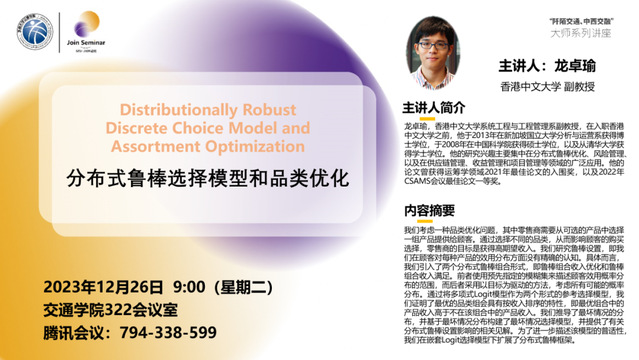
TOPIC INTRODUCTION
We consider an assortment optimization problem where the retailer needs to choose a set of products to offer to customers from the range of available products. By choosing the assortment, which will affect customers' purchase choice, the retailer aims to obtain a high expected revenue. We study the robust setting in the sense that we do not have exact knowledge of the distribution of customers' utility from each product. Specifically, we introduce two distributionally robust assortment formulations, robust assortment revenue optimization and robust assortment revenue satisficing. While the former uses a pre-specified ambiguity set to characterize the scope of the probability distributions of customers' utilities, the latter uses a target-driven approach to take all probability distributions into account. By using the multinomial logit model as the reference choice model for both formulations, we show that the optimal assortments exhibit a revenue-ordered property, i.e., products in the optimal assortment have higher revenue than those not in the assortment. We derive the worst-case distribution, and construct worst-case choice model based on the worst-case distribution and provide insights on the effects of distributionally robust setting. To describe our modeling power, we extend distributionally robust framework under nested logit choice model.
ABOUT THE SPEAKER
Daniel Zhuoyu LONG is an associate professor at the Department of Systems Engineering & Engineering Management, The Chinese University of Hong Kong (CUHK). Before joining CUHK, he received his Ph.D. degree from the Department of Analytics and Operations at the National University of Singapore in 2013, his master degree from the Chinese Academy of Science in 2008, and his bachelor degree from Tsinghua University. His research interests revolve around distributionally robust optimization, risk management, and broad applications in supply chain management, revenue management, and project management. His papers have been awarded as a finalist in the best OM paper in OR 2021 and the first prize in the Best Paper Award at the CSAMSE conference 2022.